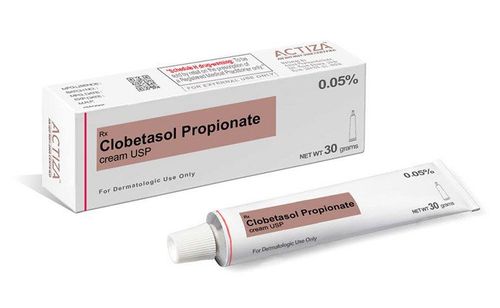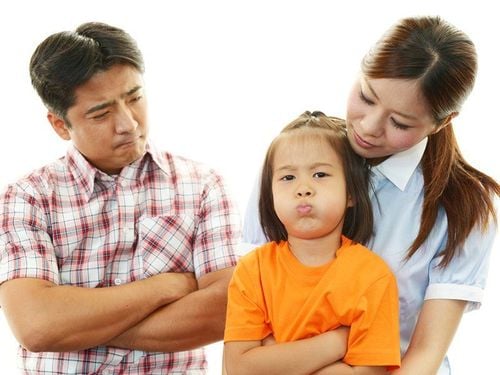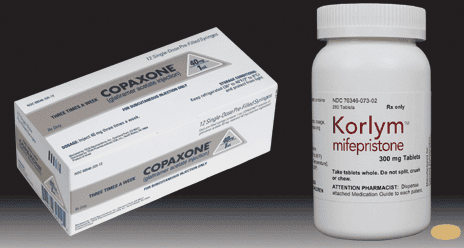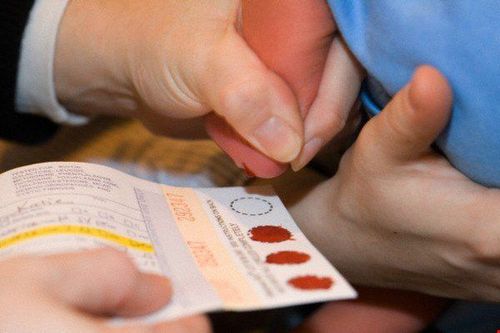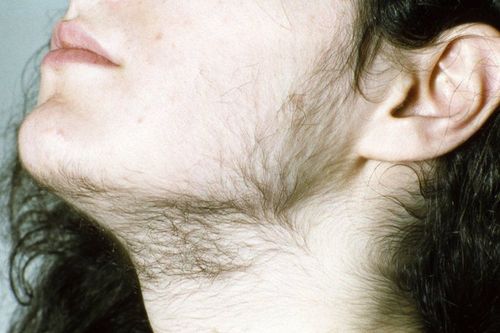This is an automatically translated article.
Hirsutism in women greatly affects the psychology and aesthetics of young girls. Treatment of hirsutism in women depends on the cause. Hirsutism in women not only affects aesthetics, hirsutism can also affect women's reproduction, when endocrine disorders make eggs underdeveloped, difficult to conceive.1. What is hirsutism in women?
Normally, androgens are secreted in very small amounts from the adrenal glands and ovaries. For some reason such as adrenal tumors, congenital adrenal hyperplasia, ovarian cysts, polycystic ovaries ... increase androgens, causing hirsutism, acne, obesity, disorders Menstruation... Besides, some people may experience hirsutism at a certain stage due to increased prolactin in the blood, prolonged use of hormonal drugs, corticoid abuse (in cushing's syndrome)... Hirsutism in women is a condition of excessive hair growth on the body and face. All women have hair on their face and body, but they are usually thin and light in color.
2. Common Symptoms
Easily recognize the disease with signs of excessive hair growth on the face. Excessive and unwanted hair growth on the face and body is a difficult long-term process. Most women with hormonal disorders respond well to treatment, but hair can grow back if hormone levels get out of control, which can cause loss of confidence, embarrassment, and shame.
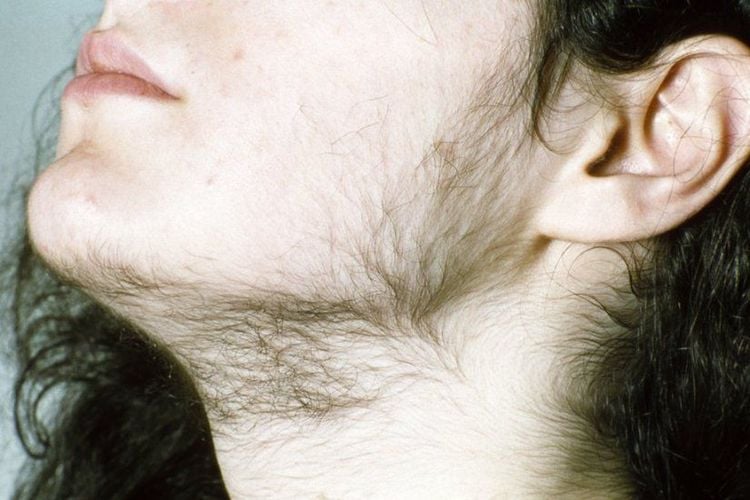
Dấu hiệu lông mọc quá nhiều trên mặt của chứng rậm lông ở phụ nữ
3. Causes of disease
Hormonal imbalance is the main cause of hair growth in women. Causes such as polycystic ovary syndrome (PCOS), other stimulating hormones, certain medications, or an adrenal gland disorder can cause unwanted facial hair growth. In rare cases, this is caused by a tumor or cancer of the adrenal gland or ovaries. In rare cases, causes of hirsutism in women include:
Medicines, such as minoxidil, used to treat high blood pressure; Congenital adrenal hyperplasia syndrome, with genetic factors affecting the adrenal glands (where sex hormones are produced); Cushing's syndrome (rare hormonal disorder); Overweight or obese; Tumor in the ovary.
4. Treatment of hirsutism in women
Treatment of hirsutism usually involves a combination of self-care methods, removal treatments and medication use.
Removal treatments include:
Electropulsation: This type of treatment involves inserting a fine needle into each hair follicle and emitting an electrical pulse to damage and eventually destroy the hair follicle. Electrolysis results in permanent hair removal, but can be painful. Certain numbing creams can be used extensively on the skin to reduce this discomfort. Side effects include darkening of the treated skin and rarely scarring. Laser therapy is a method where a highly focused beam of light (laser) is passed over the skin to disable hair follicles and prevent hair growth. After the treatment, it is possible for a long time without hair regrowth. Laser hair removal is annoying. Laser treatment can cause redness and swelling, it can also cause burning and discoloration in the skin.
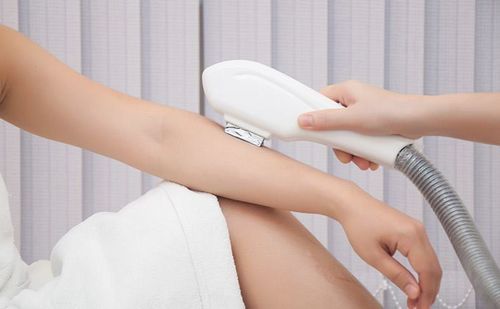
Điều trị chứng rậm lông bằng laser trị liệu
5. Drug method to treat hirsutism
Drugs used to treat androgen excess: interrupt one or more steps in the manifestation of hirsutism: Suppression of adrenal and ovarian androgen production or increased androgen binding of binding proteins plasma; impairs the peripheral conversion of androgen precursors to active androgens; inhibits androgenic effects in target tissues. The results of hair growth retardation include:
Oral contraceptives are the preferred endocrine treatment for hirsutism and folliculitis, however, are contraindicated in women with a history of thromboembolism or with women with breast or other estrogenic cancers. Birth control pills containing the hormones estrogen and progestin, treat hirsutism caused by androgens inhibited by the ovaries. Oral contraceptives are a common treatment for hirsutism in women who do not want to become pregnant. Cyproterol acetate is used to treat hirsutism. It is an anti-androgen, acting primarily by competitively inhibiting the binding capacity of testosterone and DHT to the androgen receptor. Spironolactone is often used as a corticosteroid antagonist, also a weak anti-androgen. Avoid use in pregnant patients because of the risk of male feminization. It is often used in combination with an oral contraceptive to help prevent pregnancy. and inhibit ovarian androgen production. Topical creams: There are a few topical medications that can be used for excessive facial hair in women. These creams contain a type of acid (thioglycolic) that destroys horny skin, which is very easy to damage the skin. Watch out for side effects including: soreness, tingling or skin rash.
Hirsutism is a condition related to the body's endocrine system. Effective treatment of hirsutism requires an investigation based on exploratory test results. Therefore, when women see signs of hirsutism, it is necessary to see a doctor for specific treatment.
Please dial HOTLINE for more information or register for an appointment HERE. Download MyVinmec app to make appointments faster and to manage your bookings easily.




